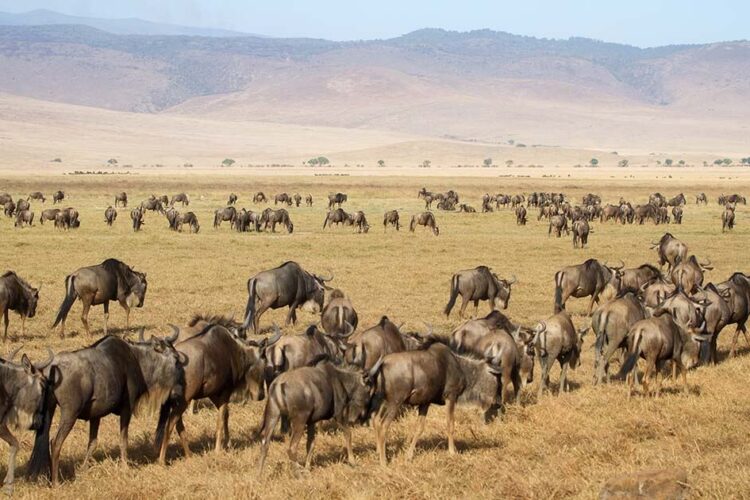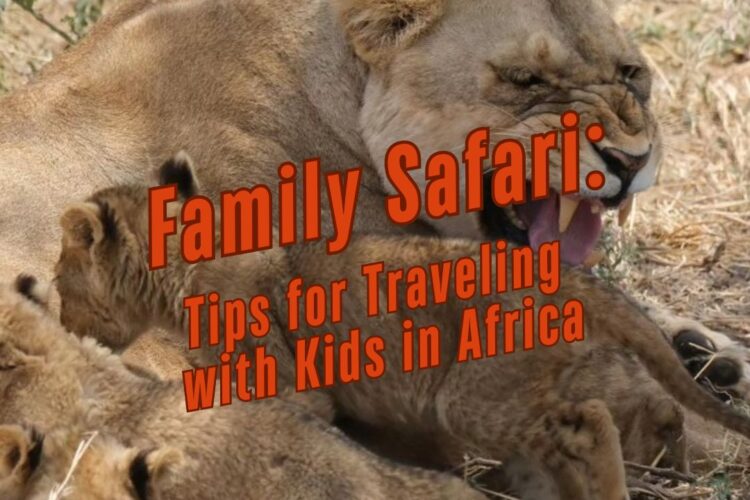A safari in Africa is one of the most fascinating and educational journeys a family can embark on. With breathtaking landscapes, incredible wildlife, and an unparalleled educational experience, it’s an adventure that leaves a lifelong impression.
However, traveling with children requires attention, planning, and a good dose of practicality. In this article, you’ll find all the tips you need to organize an unforgettable safari that’s perfectly suited even for the little ones.
10 Tips for Traveling with Children in Africa

- Choose the Right Destination
Not all African destinations are the same, especially when traveling with children. Some areas are more family-friendly due to accessibility, the availability of proper healthcare facilities, and shorter distances between attractions. Recommended destinations for a family safari include:
- South Africa: Great for malaria-free safaris in parks like Pilanesberg or Madikwe.
- Namibia: Open spaces, spectacular landscapes, and solid infrastructure.
- Kenya and Tanzania: Ideal for witnessing the Great Migration, but be mindful of malaria.
Favor regions that are easily reached via short internal flights and lodges offering family-oriented services.
- Travel Safely: Malaria and Vaccinations
One of the main concerns when traveling to Africa with children is health. Here are some practical tips:
- Choose malaria-free zones: Prefer parks where anti-malarial medication is not required.
- Consult a pediatric travel medicine specialist: They can recommend necessary vaccinations (e.g., yellow fever, typhoid, hepatitis A and B).
- Mosquito nets and repellents: Bring travel mosquito nets and kid-friendly repellents.
Always carry a small medical kit and get international travel insurance that covers medical evacuation.
- Recommended Age: When to Go with Kids
While many lodges accept children from 3-4 years old, the ideal age for a safari is 6 and up. At this age, children can:
- Stay focused during game drives (which can last 3–4 hours).
- Better understand what they see and ask questions.
- Remember the experience as an educational adventure.
That said, some lodges are designed specifically for families with younger kids, offering babysitting services, recreational activities, and mini safaris.
- Choose Family-Friendly Lodges and Tented Camps
The type of accommodation makes a big difference. When traveling with children, look for:
- Family lodges with interconnecting rooms or family suites.
- Swimming pools for relaxing between excursions.
- Kid-friendly activities: footprint-tracking workshops, savanna treasure hunts, visits to local villages.
Some lodges even provide guides trained to work with young explorers, making the experience interactive and educational.
- Plan the Pace and Activities
A family safari’s schedule must suit the children’s needs. Some suggestions:
- Shorter game drives: Better two 2-hour drives than one 4-hour session.
- Frequent breaks: Include snack and drink stops.
- Rest days: Alternate safari days with downtime to avoid burnout.
The key is finding a balance between discovery and comfort without overloading the itinerary.
- Education and Entertainment: Make the Safari a Game
A safari can be incredibly educational for kids, but engagement is key:
- Give them binoculars or a camera: Feeling like “little explorers” increases curiosity.
- Animal quizzes: Who spots the elephant first? Who can identify tracks?
- Read books about African wildlife before the trip: Helps them recognize animals during the safari.
This turns the safari into an open-air classroom, where every sighting becomes a learning opportunity.
- Food, Water, and Eating Habits
Food is often a concern when traveling with kids. The good news is many lodges:
- Offer kid-friendly menus with simple, non-spicy dishes.
- Allow custom meal requests.
- Use safe drinking or bottled water for meal preparation.
Still, bring familiar snacks, biscuits, and other comfort foods your children are used to—just in case.
- Transportation and Getting Around
Long transfers can be tiring for children. Here’s how to manage them:
- Short internal flights: Prefer these over long road trips.
- Private 4×4 vehicles: Avoid group tours; it’s better to stop whenever needed.
- Tablets and audiobooks: Useful for entertainment during transfers.
Travel during cooler hours and always have water and snacks on hand.
- Cultural Encounters
A safari isn’t just about animals. Meeting local communities can be a rich and formative experience for kids:
- Visits to Maasai villages, local schools, and traditional markets.
- Cultural activities such as dances, storytelling, and local games.
A safari in Africa is not just a journey into the wild, but also a unique opportunity to connect with cultures very different from our own. Meeting local people—from the Maasai villages in Kenya to the Himba communities in Namibia—helps go beyond tourist clichés and explore deeply rooted ways of life that often contrast sharply with Western routines. For both children and adults, this can be a true mind-opening experience: it teaches values like community, connection to the land, simplicity in daily life, and the power of oral storytelling across generations.
Visiting schools, craft markets, or simply listening to stories around a fire shows children different ways of being happy and that cultural wealth isn’t measured in material things. Interacting with local kids—playing together even without a shared language—reveals just how much we actually have in common.
So, a safari becomes more than geographical exploration—it’s a profound experience of cultural openness. It teaches children (and adults) that the world is diverse, complex, and beautiful precisely because of those differences. And that awareness is one of the greatest gifts a journey can offer.
- Memories and Extending the Experience
The journey doesn’t end when you return home. Involve your children in:
- Creating an illustrated travel journal.
- Making a photo album with captions.
- Writing a story to share at school or with friends.
These activities help them process and relive the experience with enthusiasm.
Encouraging kids to keep a journal during and after the trip isn’t just creative fun—it’s an excellent way to engage them deeply. Writing or drawing daily encourages them to observe more closely, turning a simple game drive or a chat with a local guide into a memory to capture and reflect on. It helps them retain emotions and details that might otherwise fade. The journal becomes a personal space to express thoughts, invent stories, or describe the animals and feelings they encountered.
Beyond improving memory and observation, this also boosts their language and storytelling skills, letting them share the journey from their own unique perspective. Involving them like this strengthens their self-esteem and sense of ownership over the adventure. In the end, the journal becomes a treasured, authentic memento to share with friends and family or reread years later as a record of a special family experience.
![]()
A safari in Africa with kids is a journey that blends adventure, learning, and quality family time. With the right planning, health precautions, a child-friendly pace, and engaging activities, it can become an unforgettable memory for all ages. Let the wild nature enchant you, learn to respect it, and enjoy it together as a family—one of the most powerful life lessons you can give your children. Now, all that’s left is to head off on the adventure!
Telefono: +255764514412
E-mail: info@safariavventura.com

